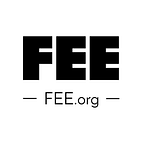Trump’s Crusade against “Archaic” Government Gridlock | Jerrod A. Laber
After more than 100 days in office, President Trump’s approval rating is at 42 percent, the lowest for any president in the post-WWII era.
Lacking any significant legislative accomplishments, and governing almost exclusively by executive order, Trump places the blame for his lackluster performance not on himself or his staff — or even his opposition in Congress.
Instead, he singles out the “archaic” rules of the House and Senate, calling it a “rough system” that jeopardizes the public good.
Government Gridlock is Good
If the president is having a hard time because of the peculiarities of our system of government, that means the system is doing exactly what it is supposed to do.
Specifically, Trump criticizes the filibuster, claiming that it forces the government to make bad decisions. Trump’s views on the filibuster are not surprising, having never shown an ounce of principle on anything, he seems to have no problem with archaic rules and institutions when they benefit him.
Trump was the populist alternative in the 2016 election, but the anti-majoritarian electoral college is what enabled his victory, as Hillary Clinton claimed the popular vote.
It is hard to say what US presidential elections would look like if they were simply a popular vote. But the archaic and anti-democratic nature of the electoral college worked in Trump’s favor and secured him the presidency, even as Clinton brought in several million more votes.
Contradicting himself once again, Trump boasted about the historic nature of his electoral win, even though in 2012 he tweeted that the “electoral college is a disaster for democracy.”
The filibuster, on the other hand, is an easy thing to hate because it curbs the ability of the ruling party to impose their legislative will, unopposed, on the rest of the country.
Democrats loathed Republicans who reflexively opposed everything President Obama tried to do during his time in office.
Even when the Democrats controlled both the White House and Congress before the 2010 midterms, they had to fight tooth and nail to get anything passed, and often still failed. Because those who emerge victorious in any given election feel they possess a mandate to pass their legislative agenda, the filibuster becomes public enemy number one when it gets in their way.
Trump seemed to like the filibuster in 2013 when Democrats were threatening to scrap it in protest of Republican obstructionism. But he had no problem when the Republicans invoked the nuclear option to confirm Neil Gorsuch to the Supreme Court.
The Threat of One-Party Dominance
Now, Trump is advocating for the Senate to change its rules to decide issues on a strict majoritarian line, which would change the country to essentially one party rule.
He’s right to suggest that it can be a rough system. But that obstructionism is a feature, and not a flaw. In a free and open society, demagogues are supposed to have a rough time.
When the majority party has control of both the executive and legislative branches, old, archaic rules are what prevent them from doing whatever they want.
In this particular case, we have a president that has boisterously threatened to back out of trade deals and other international agreements, forcibly prevent American companies from conducting their operations outside of the US, and build a giant wall along the southern border (to name just a few). The purpose of those procedural hurdles seems clearer than ever, given the onerous nature of President Trump’s stated agenda.
Minority parties have every right to oppose the majority, and procedural rules that make it harder for the majority serve as an important check, particularly when the balance of power is so skewed in one direction. These are safeguards of the political system that we should strive to protect because there will never be a shortage of unpredictable, power-hungry bullies believing they know what’s best for everyone.
Originally published on fee.org on May 6, 2017.
